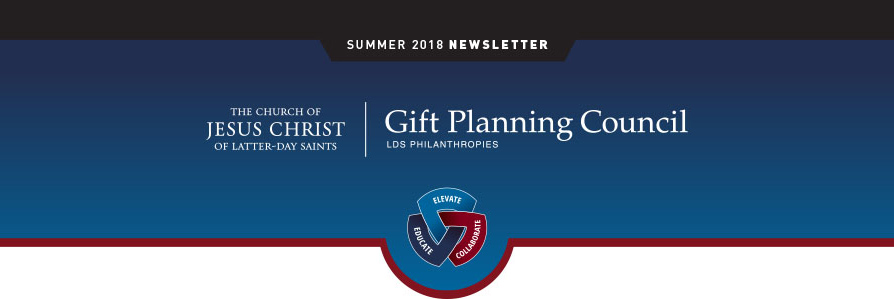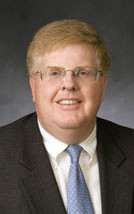Gift Planning Services Manager’s Minute


Our National Chair, Carol Warnick, and I are very excited and pleased to announce that we received approval to resume the Philanthropies Gift Planning Conference on a biennial basis! Accordingly, we anticipate that our next conference will take place in early November of 2019.
As you can imagine, your friends at Philanthropies are delighted to receive this news! We love spending time with you and the conference has been a highlight for each of us. We look forward to creating many new and wonderful memories as we share our knowledge and experiences with one another at what will be another magnificent conference.
We will reach out to you with dates and information as plans for our 2019 conference come together.
Thank you again for the time and effort that you have invested over many years to make the Philanthropies Gift Planning Council conferences successful. This success is directly attributable to you and your unwavering support.
In the meantime, as another way to stay connected, we invite you to join the new LinkedIn group, titled Philanthropies Gift Planning Council. Join here.
Discover Family History/FamilySearch Fundraising Priorities
Learning about ancestors helps us better understand who we are. FamilySearch’s vision is carried out by dedicated employees and volunteers who work tirelessly to preserve and share the largest collection of genealogical and historical records in the world. FamilySearch strives to create and link the best and most valuable research resources to help people discover who they are by exploring where they came from. To learn more about how donors can further this great work, visit the Family History/FamilySearch page at philanthropies.churchofjesuschrist.org!
Helping Clients to Continue Charitable Giving in 2018
by McKay Johnson
The higher standard deduction under the new tax law (the Tax Cuts and Jobs Act of 2017) will result in many taxpayers taking the standard deduction and no longer itemizing their charitable contribution deductions. This means that for many people, donating money to charity in the traditional way will no longer result in an increased tax deduction. Despite this, many people will want to continue to give. Most donors don’t give just for the tax benefits; however, they are more than happy to take advantage of those benefits if they are available.
Tax, legal, and financial advisors can provide a great benefit to their clients as they help with creative solutions which enable them to continue to support their favorite charitable causes in tax-advantaged ways.
Planned gift vehicles such as the charitable IRA rollover (for clients 70 and a half and older), charitable gift annuities, charitable remainder trusts, and charitable lead trusts, etc. continue to be available and valuable options for many donors, especially if they seek the other resulting benefits beyond the charitable tax deduction. These other benefits may include reducing the balance of IRA accounts, a life-long income stream (in some cases tax-free income), income and capital gains tax relief, and relief from the administrative burdens of asset management.
Another option which may be considered is a non-grantor trust. This type of trust has been part of a long-standing estate planning strategy employed to lower tax exposure and benefit families by moving assets out of a taxable estate. Although the number of taxable estates under current law is relatively small, this strategy may still be useful.
As a non-grantor trust, earnings within the trust are taxed to the trust at the trust tax rate, and not to the grantor at his individual rate. The tax rate on earnings in a trust may be higher than earnings taxed to an individual. However, distributions to a trust beneficiary are deductible to the trust and taxed at the individual’s tax rate. This can be an advantageous scenario if the beneficiary receiving a distribution is a charitable entity, which is non-taxable. In those cases, the trust receives a deduction for the charitable distribution, but with a zero-tax rate, the charity pays no tax on the funds received.
With careful planning, donors may establish a non-grantor trust which designates their heirs and charity as discretionary beneficiaries. The trust can be funded with assets of a sufficient value to generate annual earnings similar to the charitable donations they intend to make. The earnings can then be distributed from the trust to the charity in a tax-free transaction. The donor has the advantage of removing assets and income and the associated taxes from his estate while enabling him to continue to make the desired charitable contributions.
Spotlight on Ronda Gardner
By the time I graduated from BYU with my bachelor’s degree in accounting, I was expecting my third child. I never expected to use my degree. It was the backup plan in case something happened to my husband. Fortunately, when he passed away in 1996 leaving me with six children at home, I already had my accounting practice fully functioning.
I ran a typical small tax practice and deferred to the bigger firms for any trust or estate work that accidently fell into my path. When I remarried and had 13 children to supervise, I sold my practice and went back to being a full-time mom. When the last children were in high school, I returned to work with a great regional firm. I tried to tell them that I didn’t do trust taxes, but they didn’t really give me an option. When I dug in to find out everything I could about trust and estate taxation, I found a new passion in my profession. I enjoy reading through trust documents and working with families in estate planning and in following through with the plan when there is a “changing of the guard”. Ultimately, I left the regional firm and launched on my own to pursue my passion in estate and trust taxation. (Read more)
PG Calc Webinar Invitation
Philanthropies broadcasts monthly webinars from PG Calc. These webinars may qualify for continuing education credit. We extend the invitations for any interested GPC members to join us. We hold these at 11:00 a.m. and are often followed by a Q&A session with members of the Gift Planning Services team. We are located at 1450 N. University Avenue in Provo. Here are the upcoming webinars (as well as the entire 2018 schedule):
- Jun 28 - Taxation Basics for Gift Planners
- Jul 26 - Regaining Momentum in Your Planned Giving Program
- Aug 30 - What to Use and When: CGAs vs. CRATs and CRUTs
In addition, our 2017 Gift Planning Council conference presentations have been added online, with the videos soon to follow. Please feel free to view these at the Gift Planning Council website.
Contact Us
For a detailed discussion of the services we provide you and your advisors, please contact us at 1-877-650-5377 or by email.